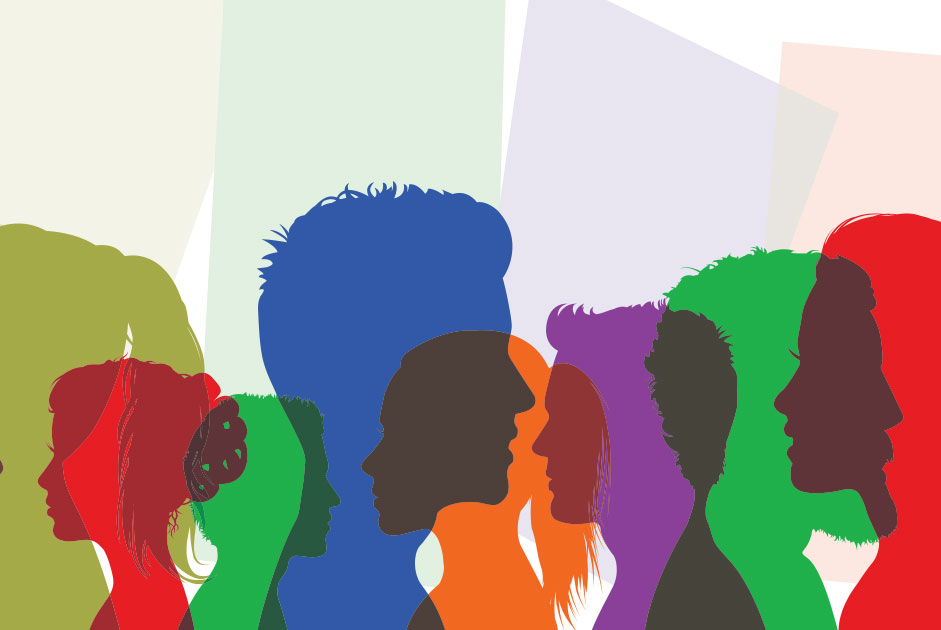BY BROOKE ORR, MS, RD, LDN
The American Psychiatric Association says that more than half of people with mental illness don’t seek help for their disorder due to concern of stigma, prejudice and discrimination – and this is true for eating disorders. The National Eating Disorders Association (NEDA,) the largest nonprofit organization dedicated to supporting individuals and families affected by eating disorders, says “Eating disorders have historically been associated with heterosexual, young, white females, but in reality, they affect people from all demographics of all ethnicities at similar rates. One in three people struggling with an eating disorder is male, eating disorders disproportionately impact some segments of the LGBTQ+ community, and rates of eating disorders and body dissatisfaction occurring later in life are on the rise.” In addition, eating disorders can occur in, and negatively affect, ALL bodies, thin or fat. The Cleveland Clinic Journal of Medicine explains that malnutrition from eating disorders negatively affects many systems in the body and occurs regardless of size – yes, this even applies to obesity!
We currently live in a culture that confuses aesthetics with health. This bias contributes to stigmas that build a barrier to treatment and care. Each year NEDA plans a week of events aimed at educating the public, spreading a message of hope, and putting lifesaving resources into the hands of those in need. NEDA Awareness week is February 22-28, 2021 and the theme, “Every Body has a Seat at the Table,” will challenge systemic biases, inviting people from all backgrounds and experiences to share their stories and access care. Below are ways you can get involved.
- Get Screened. Are you a chronic dieter, constantly unhappy with your body, obsessed with eating “healthy,” or curious if your eating habits are keeping you from being the best you? If so, take the eating disorder assessment on the NEDA website and encourage your friends and family to do the same (https://www.nationaleatingdisorders.org/screening-tool).
In addition, evaluate your own biases around mental health and body size through the Harvard Implicit Association Test, available for free online (https://implicit.harvard.edu/implicit/takeatest.html). Having biases does not make one a bad person. Recognizing them and working to neutralize or not act on them allows our culture to heal and allows individuals to become part of the solution.
- Educate Yourself. Eating disorders are serious but treatable mental and physical illnesses that can affect people of all genders, ages, races, religions, ethnicities, sexual orientations, body shapes, and weights. The chance for recovery increases the earlier an eating disorder is detected. Therefore, it is important to be aware of some of the warning signs of an eating disorder. Visit the NEDA website for a more extensive list of signs and symptoms: https://www.nationaleatingdisorders.org/warning-signs-and-symptoms.
- Speak Up. Current culture promotes body dissatisfaction at every turn. One cannot walk into an office break room without hearing about the latest diet their colleagues are trying, or turn on the TV/radio without hearing an advertisement for body sculpting or anti-aging services. Pay attention to how you speak of your body and others’ bodies. Do not comment on weight, shape, size or aesthetic. Instead, focus compliments and conversations around gratitude, positive character traits, etc. For example, instead of “Wow, you look great, did you lose weight?” try “I am so happy to see you, what is new in your life?”
- Ditch the Diet and Embrace Diversity. Dieting is the biggest predictor of a developing eating disorder. Diets can be camouflaged as lifestyle changes, healthy habits, clean eating, etc. Wellness is important and it refers to more than what we eat or the shape of our bodies. Consider working with a non-diet dietitian if you want to change eating habits without falling into the diet trap. Recognize that weight is like height. We grow until we are done growing and that is the height we are stuck with – and the diversity is beautiful. The same is true of weight; instead of viewing one body size as ideal, embrace the beauty of diverse bodies.
There is an abundance of misinformation and myths about eating disorders. Be the solution – educate yourself, reduce the stigma, and arm yourself with the facts so you can help yourself and others get the treatment they need. https://map.nationaleatingdisorders.org/
- The National Eating Disorders Association (NEDA). (n.d.). National Eating Disorder Awareness. Retrieved January 13, 2021, from https://www.nationaleatingdisorders.org






















